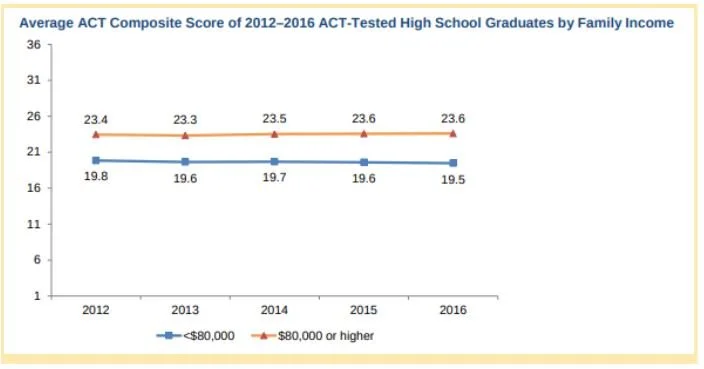Abolish the ACT
Photo from Pexels by Andy Barbour
Sage Osesek
The ACT is a timed multiple-choice test that has historically been used to show individual intelligence and readiness for college admissions. However, this common outlook is categorically inaccurate. A single timed multiple-choice test has no business representing a student’s academic abilities.
The ACT reflects test-taking skills, not intelligence. It uses patterns that will never demonstrate a student’s aptitude for college. ACT prep courses drill these patterns into students’ minds, directing students to not pick too specific, tonally-off, extreme, dramatic, or almost true answers. Given this knowledge, test takers could get these questions correct simply because they recognize the ACT’s repetitive style. This doesn’t reflect the test taker’s reading capabilities whatsoever, one of the components the ACT claims to show. On the contrary, it reflects the test taker’s ability to spot patterns.
As mentioned, ACT prep courses teach tricks and tips to students. Upon combing through the internet for ACT courses, I found that the cost of them is between $150 to $2,199. The Princeton Review course (with a discount to just $1,899!) guarantees a score of 31+ with hundreds of positive reviews. Lower-income students lack the resources to enroll in these courses and thus, lack the resources to guarantee a high score. Furthermore, lower-income students often lack the resources to retake the ACT. Administrators let students take the ACT up to 12 times with a $55 fee attached to each test taken. Higher-income students have the opportunity to improve their scores while lower-income students are stuck with their original scores. A small portion of lower-income students do qualify for fee waivers, eliminating retake costs, but this doesn’t detract from the fact that a large portion of non-qualifying students will face cost-related issues. $55 is a hefty price for any student lacking a steady flow of cash. These factors not only expose the dollar signs in the eyes of the ACT and prep course creators, but they contribute to lower-income students receiving lower scores than their higher-income counterparts. To further show this concept, according to ACT’s released The Condition of College and Career Readiness 2016 report, the higher the household income, the higher the ACT score. The following graph demonstrates this assertion:
From 2012-2016, higher-income students consistently scored better than lower-income students. While factors other than costly prep courses and retakes contribute to this difference, the gap is still present, which shows the inherently biased nature of the ACT.
Moreover, the time limit for the ACT is ridiculous. Logically, the student who processes words faster will earn a higher score. 35 minutes for 40 questions on the science and reading tests can be tough to conquer when one naturally reads/processes information slower. This isn’t a matter of intelligence; it is a matter of genetic brain structure. Brain structure determines processing time. So, a short time limit favors “quick thinkers” with convenient brain structures rather than those with different brain structures, which further shows the inequities of the ACT. How is it that one test determines a student’s readiness for college when it really only tests a specific brain structure?
The ACT has been criticized for years, and colleges are starting to halt requirements for ACT scores. This is a progressive decision, given the many issues the ACT presents. Whether it be money concerns, insensible time limits, or the test’s inability to measure one’s aptitude for college, it’s clear that it’s time to abolish the ACT.
Sources
ACT Composite Score by Family Income
ACT Reading: Spotting Wrong Answer Patterns
The Best ACT Prep Courses and Classes for 2023
Why the ACT is more about Test-taking than Intelligence
What Causes Slow Information Processing?







